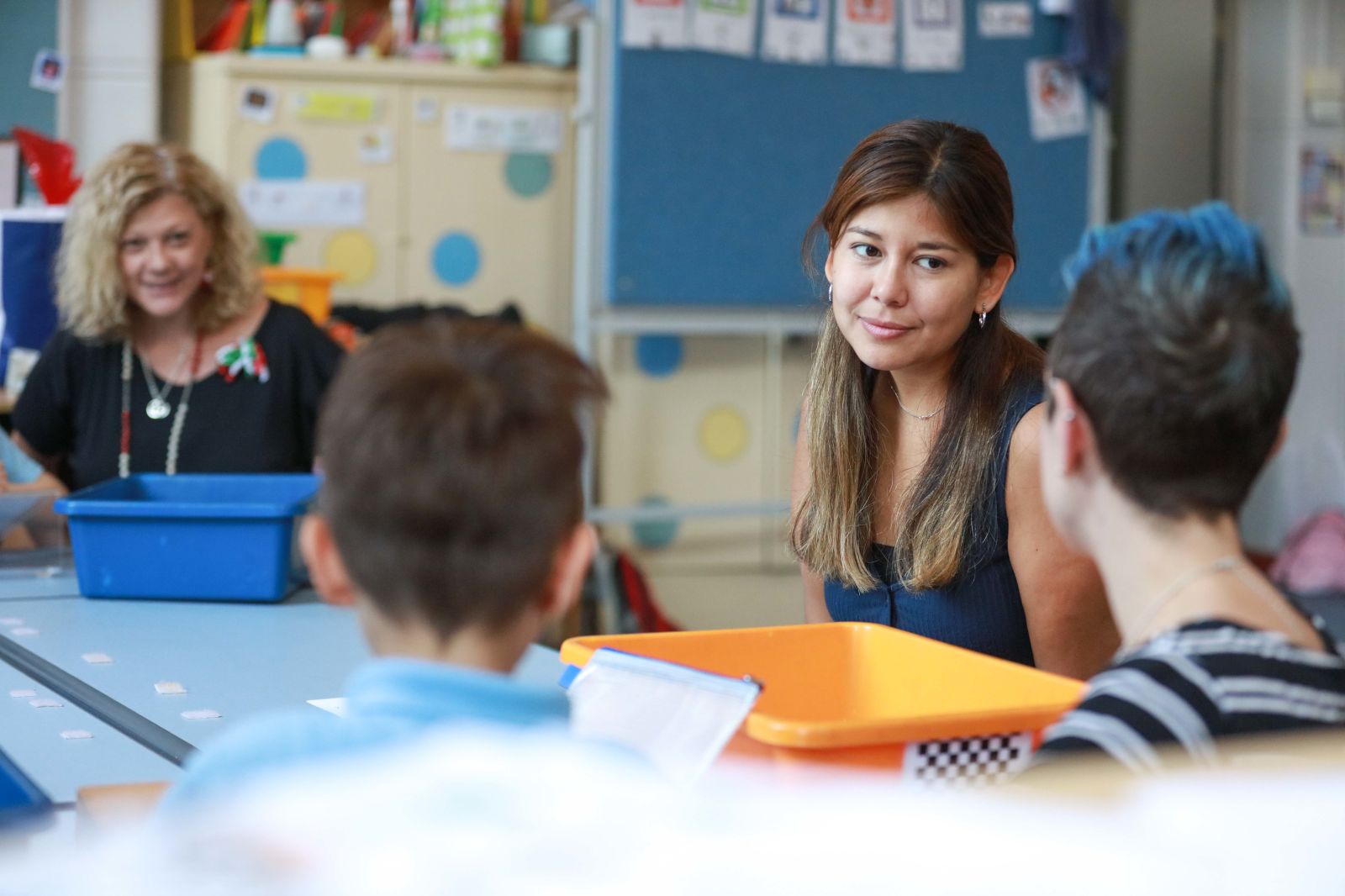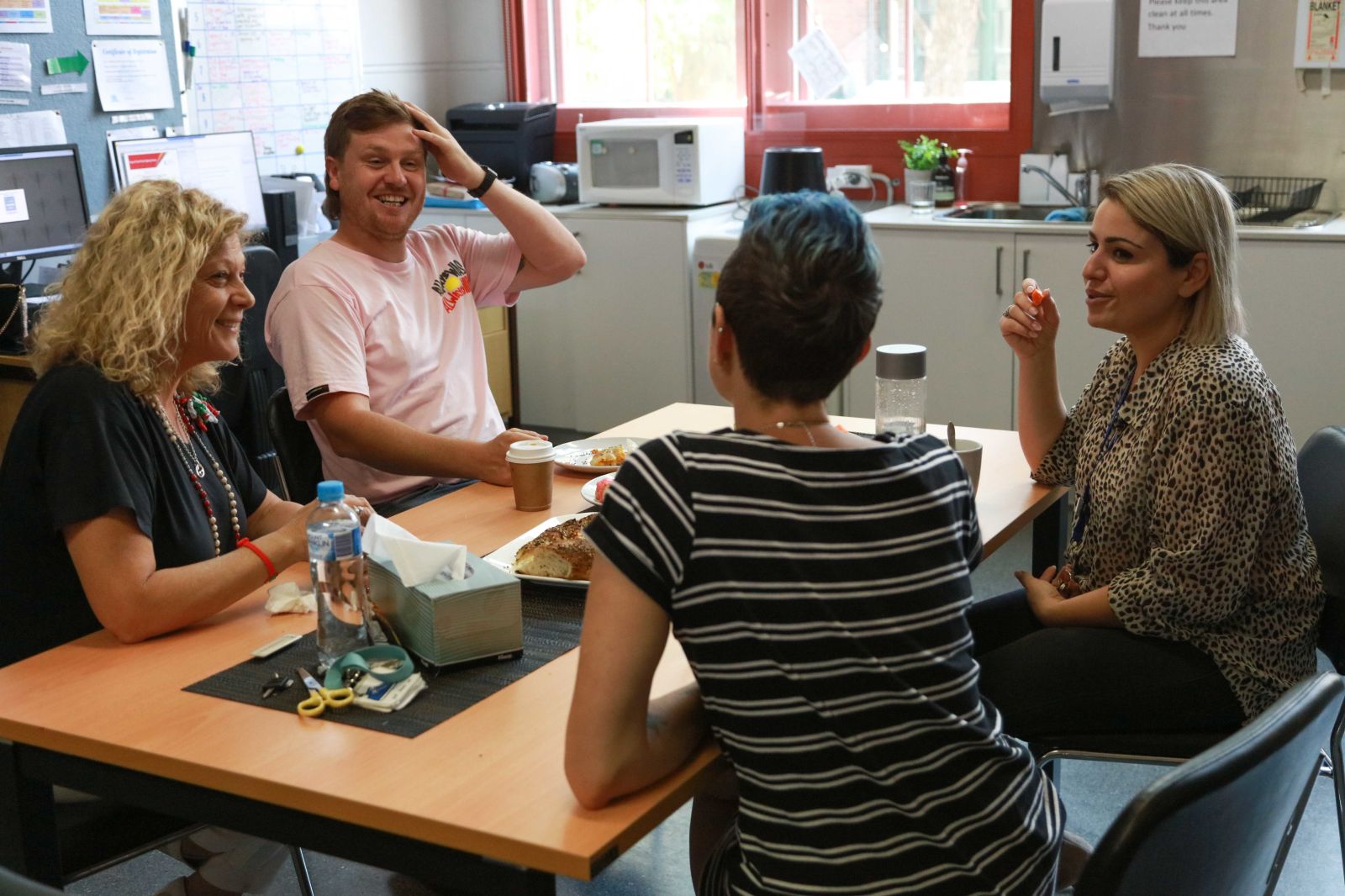Why are we doing this plan?
Aspect is engaging with the development and implementation of a Multicultural Engagement Plan because we identify:
- the importance of providing leadership at Aspect on matters of diversity and inclusion,
- we seek to promote understanding, appreciation and respect for people of all cultures and backgrounds and,
- to develop mechanisms for reporting and responding to our people and community.
It is important that our Multicultural Engagement Plan addresses the overall cultural, ethnic and religious backgrounds of all people of the communities in which we provide services. We also must review how we collect data that better captures the multicultural diversity of our students, participants and families.
The Australian Bureau of Statistic ABS in 2016 Census shows that two-thirds (67 per cent) of the Australian population were born in Australia. Nearly half (49 per cent) of Australians had either been born overseas (first generation Australian) or one or both parents had been born overseas (second generation Australian).
This data shows evidence of the need for Aspect to engage with this Multicultural Engagement Plan and increase our reach to the communities that need it most.
Disability and Multicultural Communities
With the introduction of the National Disability Insurance Scheme (NDIS) in Australia over recent years, there has been a focus on the challenges in how the multicultural community across Australia are navigating their way through services.
Many people have difficulty accessing the NDIS and disability support services in a culturally responsive and timely manner, leading to frustration, delays, and continuing disadvantage and discrimination (ECCV, 2019). This informs an increased need for Aspect to focus on the diverse communities that access our schools and services and the wider community.
Consultation with people from migrant or refugee background tells us people want a more culturally responsive disability services system, with improved access, greater flexibility, and funding for specialised services (EVVC, 2019).
Aspect can learn from this in finding ways for culturally diverse people with disability to play a central role in developing safe and responsive disability policies, services and supports for their communities.
Consultation
This Plan was developed in consultation with our leadership team, employees, external agencies and Autistic and LGBTQIA+ people. The Aspect Multicultural Working Group was established to summarise the findings from the consultations into two guiding principles.
Aspect will work towards these goals and actions over the course of the 2020 Multicultural Engagement Plan and beyond. Each action will be undertaken with consultation and multicultural communities and Autistic people and their families.
1. Culturally responsive teams and inclusive workplace culture
1.1 Formalise the Aspect Multicultural Working Group
1.2 Explore online frameworks to evaluate Aspect’s organisation wide cultural responsiveness
1.3 Develop a planned approach to address the priorities raised through the Bi-annual Voice survey
1.4 Develop a calendar of significant cultural dates/events
1.5 Seek out opportunities to celebrate the cultures and languages that represent Aspect employees
1.6 Review existing policies relating to multicultural diversity and inclusion in the workplace including working with interpreters and translation of materials
1.7 Review recruitment processes to identify and remove barriers for people from multicultural backgrounds
1.8 Identify opportunities for Aspect staff to engage in cultural competency training
1.9 Review Writing Style Guidelines for culturally inclusive language
1.10 Increase the representation of multicultural diversity within Aspect social media, image library and website
1.11 Review office and site environments for visual inclusivity, information and welcoming of people from all cultural backgrounds
2. Community access, participation and partnerships
2.1 Seek out opportunities to celebrate the culture and languages of participants, students and families
2.2 Investigate opportunities for government grants, to fund community engagement projects
2.3 Facilitate consultation with students, participants, families and employees from multicultural backgrounds that seeks to gather information about how we can improve our services
2.4 Explore opportunities to consult with stakeholders from multicultural communities that seeks to develop relationships and gather information
2.5 Review existing resources, identify gaps and plan for the development of culturally responsive resources and approaches
2.6 Review practices and opportunities for culturally responsive accommodations for participants and families when accessing services
2.7 Identify a process of providing up to date referral lists of bilingual services for multicultural individuals and families
2.8 Identify opportunities to increase and embed multilingual capacity across our information
We welcome any comments or feedback from the community via our Aspect Inclusion Officer:
References:
‘It’s Everybody’s Business’ Multicultural Community Perspectives on Disability and the NDIS, Ethnic Communities’ Council of Victoria (ECCV), June 2019
Findings from the 2017 Speak Out Against Racism (SOAR) student and staff surveys, Australian National University (ANU), 2017
Multiculturalism Discussion Paper, Scanlon Foundation, 2016
Multicultural Youth Australia Census Status Report, Wyn, Khan & Dadvand, 2017/18



